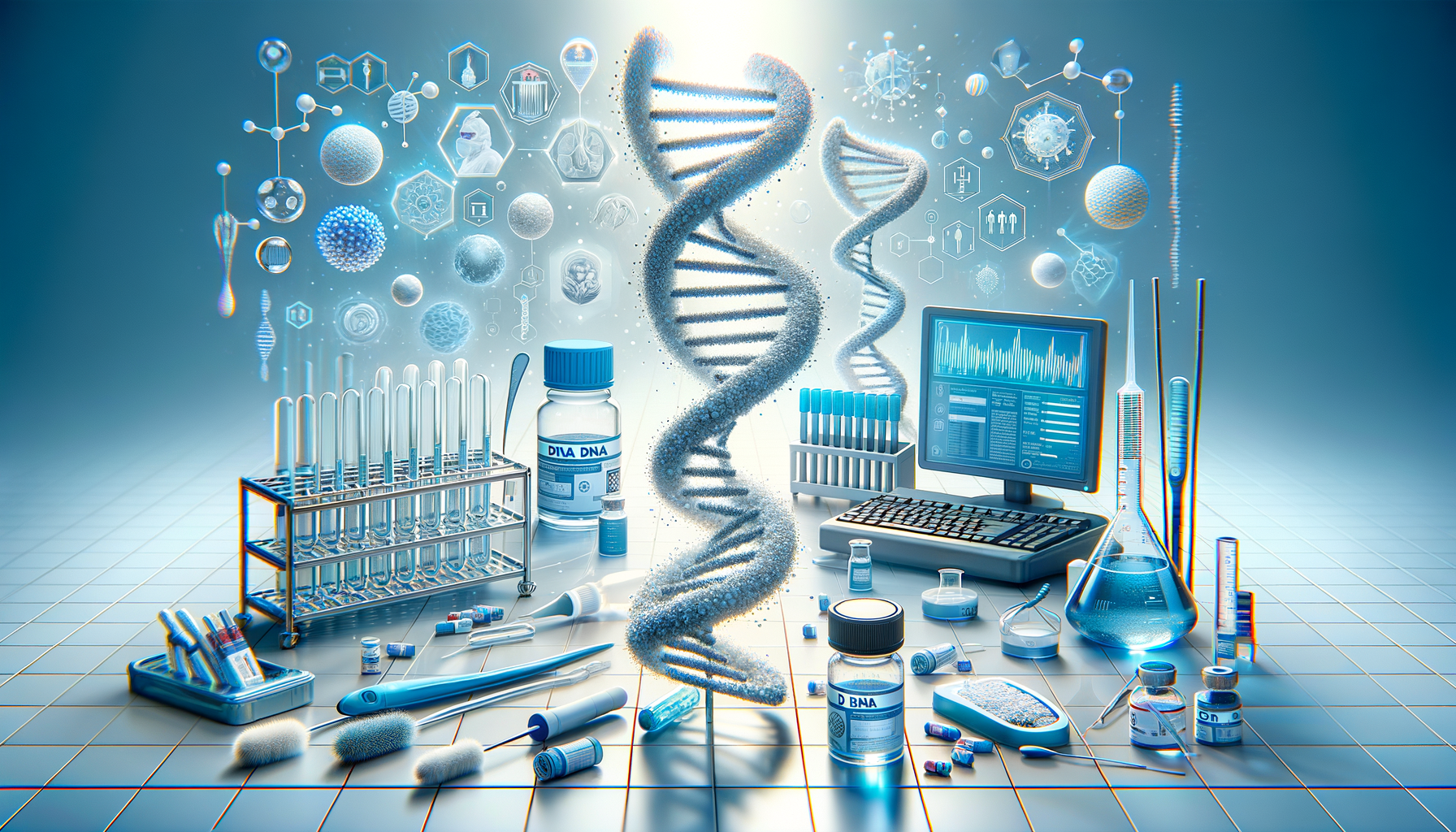It’s in Your DNA – Discover It Now
DNA testing offers insights into ancestry, health, and personal traits, making it a fascinating and valuable tool for self-discovery.

Understanding DNA Testing: A Brief Overview
DNA testing, a marvel of modern science, has opened up new avenues for individuals to explore their genetic makeup. At its core, DNA testing involves analyzing a person’s genetic code, which is composed of long strands of nucleotides. By examining these strands, scientists can uncover a wealth of information about an individual’s ancestry, health predispositions, and even certain traits. The relevance of DNA testing has grown exponentially, with applications ranging from medical diagnostics to genealogical research.
There are several types of DNA tests, each serving a specific purpose. The most common are autosomal DNA tests, which provide a broad overview of one’s genetic background and are often used for ancestry purposes. Mitochondrial DNA tests trace maternal lineage, while Y-DNA tests are used to explore paternal ancestry. Each type of test offers a unique glimpse into a person’s genetic history, making DNA testing a versatile tool for various fields.
The process of DNA testing typically involves collecting a saliva sample, which is then sent to a laboratory for analysis. The results, often delivered in a few weeks, can provide insights into ethnic origins, potential health risks, and even familial connections. As technology advances, the accuracy and scope of DNA testing continue to improve, promising even more detailed and informative results in the future.
The Role of DNA Testing in Ancestry Research
One of the most popular applications of DNA testing is in the realm of ancestry research. People are inherently curious about their origins, and DNA testing provides a scientific means to trace one’s lineage back through generations. By comparing genetic markers, individuals can discover connections to distant relatives and gain insights into their ethnic backgrounds.
DNA testing has revolutionized genealogy by offering a more accurate and comprehensive picture of a person’s ancestry than traditional methods. Genealogists often use DNA testing to fill gaps in family trees, confirm relationships, and uncover new branches of their lineage. The ability to connect with relatives across the globe has made DNA testing a powerful tool for those seeking to understand their heritage.
Moreover, DNA testing can reveal fascinating stories of migration and cultural history. For instance, individuals may find connections to regions they never expected, shedding light on historical events that shaped their family’s journey. This aspect of DNA testing not only satisfies personal curiosity but also enriches one’s understanding of human history and the interconnectedness of cultures.
Health Insights Through DNA Testing
Beyond ancestry, DNA testing offers valuable insights into an individual’s health. By analyzing specific genetic markers, DNA tests can identify predispositions to certain health conditions, allowing for proactive measures and personalized healthcare strategies. This aspect of DNA testing is particularly beneficial as it empowers individuals to make informed decisions about their health and lifestyle.
DNA testing can reveal genetic variants associated with conditions such as heart disease, diabetes, and certain types of cancer. Armed with this information, individuals can work with healthcare providers to monitor risks and implement preventive measures. Additionally, DNA testing can guide lifestyle choices, such as diet and exercise, tailored to an individual’s genetic makeup.
It is important to note that while DNA testing provides valuable health insights, it is not a definitive diagnostic tool. Genetic predispositions do not guarantee the development of a condition, and environmental factors also play a significant role. Therefore, DNA testing should be used as a complementary tool in conjunction with professional medical advice.
Ethical Considerations and Privacy Concerns
As DNA testing becomes more prevalent, ethical considerations and privacy concerns have come to the forefront. The sensitive nature of genetic information necessitates careful handling to protect individuals’ privacy and prevent misuse. Companies offering DNA testing services must adhere to strict privacy policies and ensure that genetic data is securely stored and not shared without consent.
One major concern is the potential for genetic discrimination, where individuals could be treated unfairly based on their genetic information. To address this, many countries have implemented laws prohibiting the use of genetic information in employment and insurance decisions. However, ongoing vigilance is required to ensure these protections are upheld and adapted to new challenges.
Furthermore, individuals should be aware of the implications of sharing their genetic information, particularly in terms of familial privacy. DNA testing can reveal unexpected family connections or discrepancies, which may have emotional and social consequences. It is crucial for individuals to consider these factors and approach DNA testing with a clear understanding of potential outcomes.
The Future of DNA Testing: Innovations and Possibilities
The future of DNA testing holds exciting possibilities as technological advancements continue to enhance its capabilities. Emerging techniques, such as whole-genome sequencing, promise to provide an even more comprehensive view of an individual’s genetic makeup. This could lead to breakthroughs in personalized medicine, where treatments are tailored to an individual’s unique genetic profile.
Innovations in DNA testing are also expanding its applications beyond health and ancestry. For example, researchers are exploring the use of DNA testing in fields such as forensic science, agriculture, and environmental conservation. These developments highlight the versatility of DNA testing and its potential to address a wide range of challenges.
As DNA testing evolves, it is essential to balance innovation with ethical considerations. Ensuring that advancements are used responsibly and equitably will be key to maximizing the benefits of DNA testing for society. By fostering a collaborative approach between scientists, policymakers, and the public, the future of DNA testing can be both promising and ethically sound.